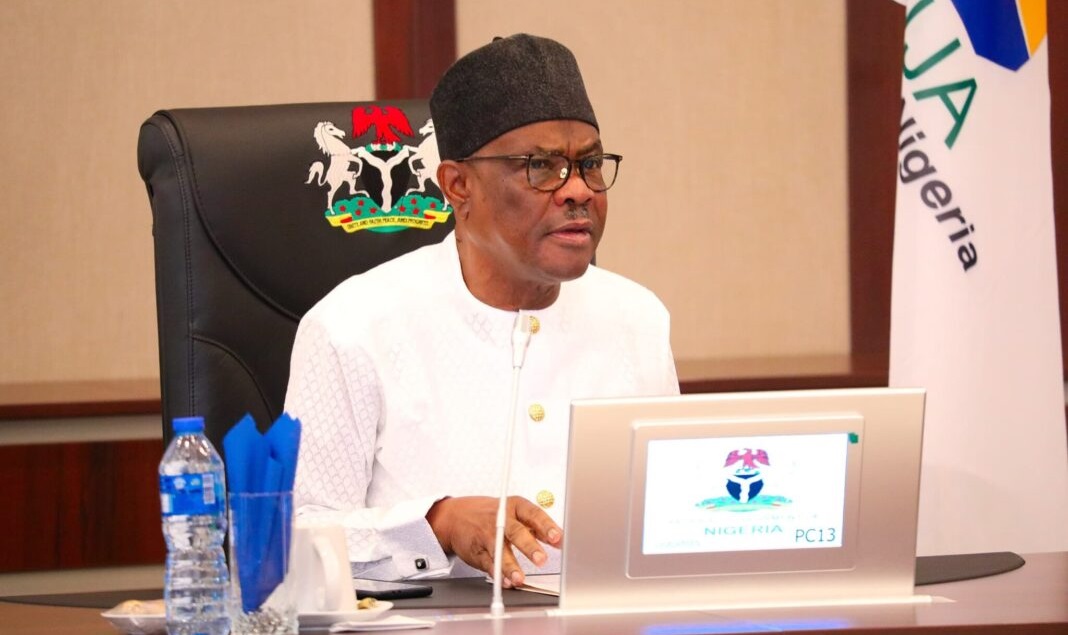News
FRSC rescues accident victims, recovers N8.6m from scene

A rescue team of the Federal Road Safety Corps (FRSC) has rescued three accident victims and recovered N8,620,000 at the scene in Kaduna State.
The accident occurred around 7pm on Monday, September 30, at Area G Samaru, along Zaria-Funtua road.
Spokesman of the FRSC, Assistant Corps Marshal Olusegun Ogungbemide, who announced this in a statement on Tuesday, October 1, said the accident involved two vehicles.
According to Ogungbemide, three people were involved in the accident but only two people were injured.
He said: “ From the report of the rescue operations conducted, a Ford pick up belonging to Nigerian Army with registration number FST 134FX was moving towards Funtua when a Toyota Corolla, red in colour with registration number KTN 316 HK enroute Zaria whose driver was confirmed to be speeding against legal speed limit on that route, lost control and crashed onto the Ford Pick.
“Initial investigation which revealed that the cause of the crash is speed violation also shows that three people were involved in the Crash. Two of the victims sustained various degrees of injury, while the remaining victim was rescued without injury.
“The injured were rescued to Ahmadu Bello Teaching Hospital, Shika for immediate medical attention.”
The spokesman said the FRSC Corps Marshal, Shehu Mohammed, had applauded the rescue team for a job well done.
He said the Coprs Marshal had also identified speed as as one of the major causes of fatalities and injuries in the country, and urged the motorists to desist from violating prescribed speed limit on all roads.
“He further implored the operatives to always sustain the integrity that the Corps is known for and the legacy of its founding fathers,” Ogungbemide said.
News
UK Tories mull replacing Badenoch as party leader after poor ratings

Unrest within the United Kingdom’s Conservative Party could see Kemi Badenoch booted out as leader after poll ratings for the party have dipped ahead of next week’s local elections.
The Tories are expected to lose a significant number of seats in the elections.
Polls indicated that Badenoch has performed poorly and focused on the wrong issues in the six months she has served as Tory leader.
More than two dozen members of parliament told Bloomberg that the British-Nigerian is not the right person to take the party into the next general election due by mid-2029.
Last year, Prime Minister Keir Starmer led the Labour Party to victory, ending 14 years of Conservative rule in the UK.
The Tories, who are looking to make a comeback, believe Badenoch should be replaced with Robert Jenrick, the right-wing shadow justice secretary.
Jenrick has voiced ambitions to unite the right-wing vote and reduce competition from Nigel Farage’s Reform UK, signaling internal challenges putting Badenoch’s leadership under significant pressure.
The decision also comes as Nigel Farage’s right-wing Reform Party has consistently outperformed the Tories in recent polls, threatening to replace them as the main force on the right.
Badenoch has focused on several issues that critics consider the “wrong” or problematic priorities for the Conservative Party at this time.
She has concentrated heavily on opposing what she terms “left-wing nonsense”, including excessive regulation and identity politics.
Critics say she has failed to demonstrate clear, detailed policy frameworks and has focused instead on broad conservative principles and cultural issues, raising concerns about the party’s ability to present a comprehensive political agenda to voters.
News
Pope Francis finally laid to rest

Pope Francis was buried inside his favourite Rome church after a funeral mass in St Peter’s Square, the Vatican said on Saturday.
Francis who died on Monday aged 88, was laid to rest during a 30-minute ceremony which started at 1:00 pm (1100 GMT) at the Santa Maria Maggiore basilica in the Italian capital.
Footage shared by the Holy See showed cardinals marking his wooden and zinc coffin with red wax seals.
Cardinal Kevin Farrell, who as camerlengo is running the Vatican’s day-to-day affairs until a new pope is elected, sprinkled it with holy water after it was lowered into a tomb set inside an alcove.
A reproduction of the pectoral cross worn by Francis during his lifetime hung above it.
Francis had asked that the tomb, located near the altar of Saint Francis, be simple and unadorned, reflecting the humble spirit of his papacy.
The tombstone bears only the inscription “Franciscus” — the pope’s name in Latin.
Its marble is sourced from Liguria, the northwestern Italian region once home to the Argentine pontiff’s Italian ancestors.
Francis, born Jorge Bergoglio, had specified in his will the exact spot he wanted to be buried, in the side nave of the beloved fifth-century AD church.
The pontiff was devoted to the worship of the Virgin Mary and made a point of praying in Santa Maria Maggiore before leaving on trips abroad and upon his return to Rome.
He declared his desire to be entombed there in 2023.
Located in the heart of Rome, the basilica already holds the tombs of seven popes.
But the last one to be buried there was Clement IX in 1669. More recently, popes have usually been buried in St Peter’s Basilica.
One of four papal basilicas in Rome, Santa Maria Maggiore also holds the remains of several other renowned figures, such as the architect and sculptor Gian Lorenzo Bernini, who designed St Peter’s Square and its surrounding columns.
News
Just in: Gunmen invade pro-Wike group in Bayelsa

Gunmen suspected to be hired political thugs disrupted a rally organised in support of Minister of the Federal Capital Territory, Nyesom Wike, on Saturday in Yenagoa, Bayelsa State.
The event, which also marked the inauguration of the NEW Associates group, was meant to thank President Bola Tinubu for appointing sons and daughters of Bayelsa into positions in his administration, while also showing support for Wike, who serves as the group’s grand patron.
Originally scheduled for April 12, the rally had been postponed to April 26 after another group, supporters of Governor Douye Diri, booked the same venue and date for their own rally.
Although both groups eventually rescheduled, tensions remained high.
Supporters of NEW Associates had gathered early at the Church of God Mission Camp, ready for the event, when armed men suddenly emerged from nearby creeks and bushes, firing gunshots into the air.
The crowd quickly scattered in fear, while security forces including the Nigeria Police, the Nigeria Security and Civil Defence Corps (NSCDC), and the Department of State Services (DSS) responded by pushing back the attackers and searching the surrounding area to prevent further violence.
After the incident, Comrade Ebilade Ekerefe, Secretary of NEW Associates and former spokesperson of the Ijaw Youths Council, accused the state government of trying to disrupt their peaceful gathering.
He insisted the rally would go on, stating that their intention was simply to express gratitude to the President and show solidarity, and questioned why anyone would feel threatened by such an event.
Similarly, Dr Pabara Igwele, the immediate past Commissioner of Health in Bayelsa, described the rally as peaceful and blamed the disruption on political motives.
He also vowed that the rally would continue despite the attack.
After the initial chaos, supporters regrouped to carry on with the event.
-

 News18 hours ago
News18 hours agoList of World Leaders that are present in the final funeral of Pope Francis
-

 News14 hours ago
News14 hours agoJust in: Gunmen invade pro-Wike group in Bayelsa
-

 News22 hours ago
News22 hours agoDefections: Teejay Yusuf traces genesis of PDP palaver, key issues affecting Nigeria’s largest opposition party
-

 News24 hours ago
News24 hours agoCBEX: EFCC declares four persons wanted over crypto fraud + photos
-

 News19 hours ago
News19 hours ago2Face estranged wife, Annie Macauley breaks silence after he married Natasha
-

 News24 hours ago
News24 hours agoScandal! Osun monarch, pastor admit to COVID-19 fraud in US
-

 Politics21 hours ago
Politics21 hours agoUgochinyere remains Nigeria’s number one Hushpuppi of politics-Olayinka carpets Imo Rep
-

 Entertainment18 hours ago
Entertainment18 hours agoMohbad’s Inquest: Pathologist reveals major findings following 2nd autopsy






